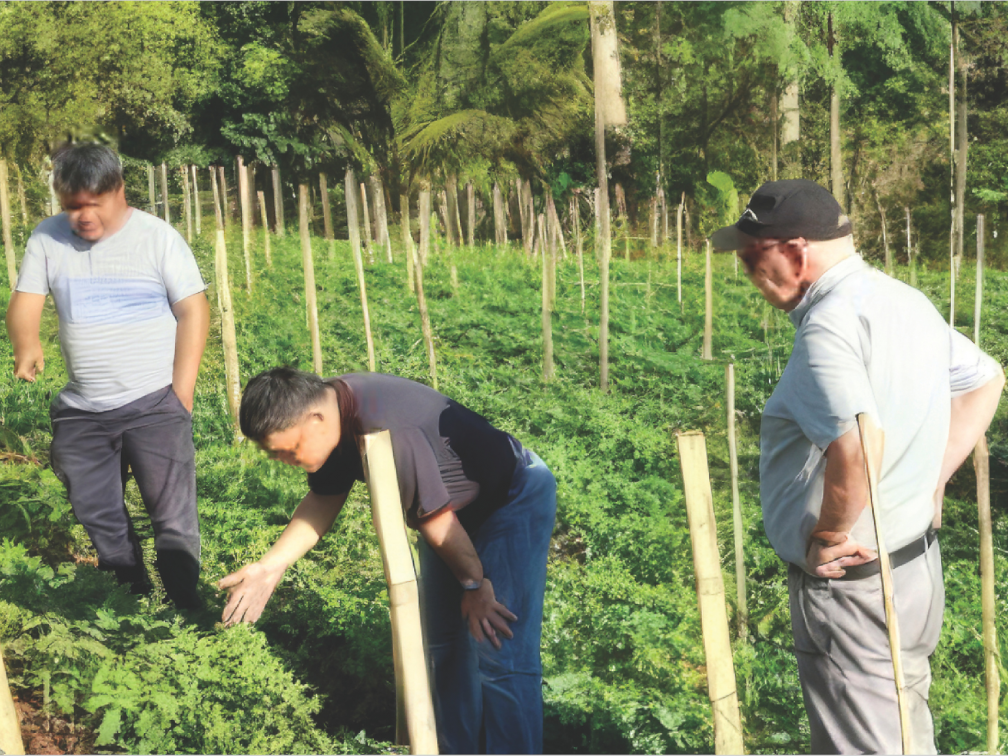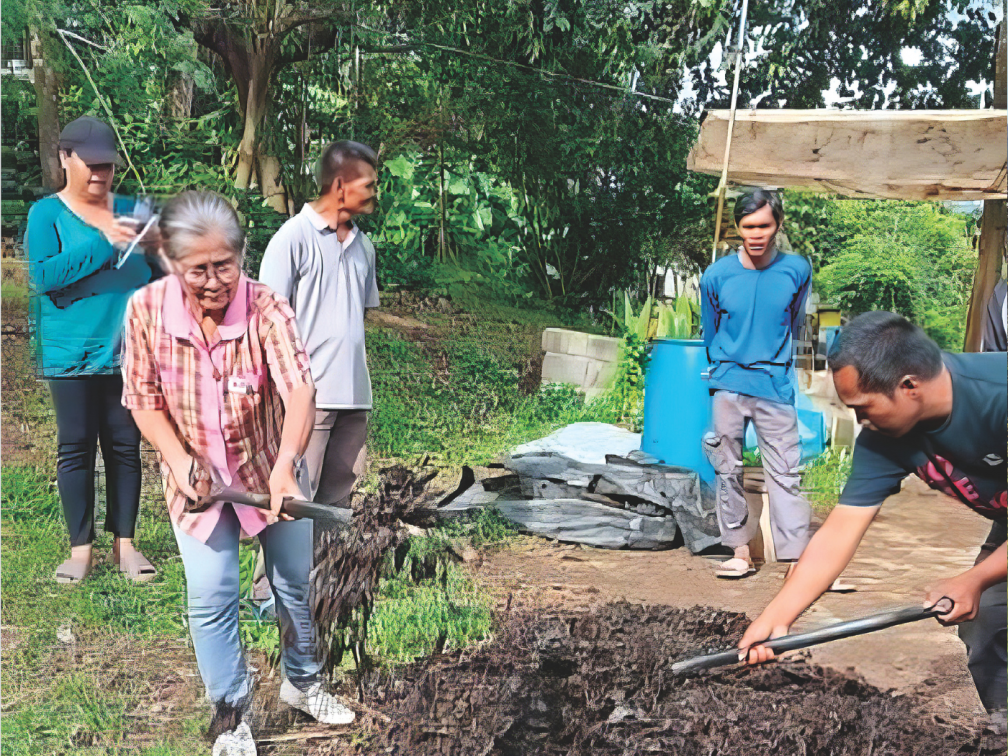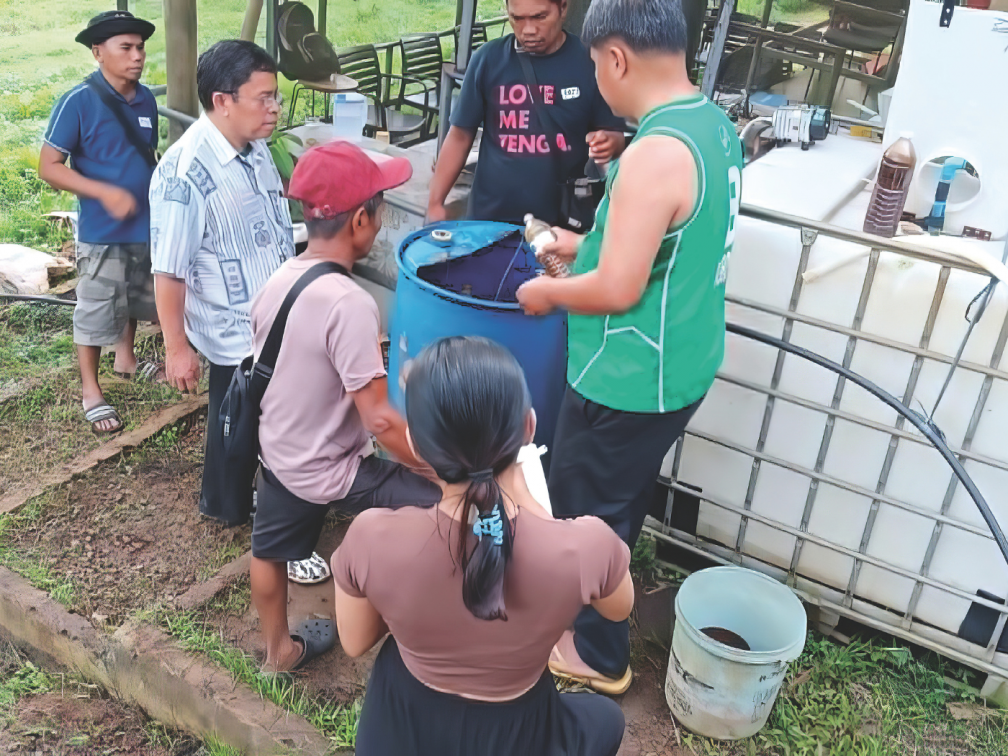
Over two days last February a training workshop on regenerative agriculture and soil regeneration was held at the Living Soils Farm in Claveria, Misamis Oriental. The training in Sitio Kakawan, Patrocenio was attended by ten key leaders who are involved in farming and faith-based organisations. They promote various initiatives in Mindanao to protect and care for the environment through agro-ecological, climate-resilient farming practices.
The objective of the workshop was to rekindle the interest and inspire these leaders who have been working, practicing and promoting natural and organic agriculture in rural areas. It provided them with an opportunity to learn about the latest developments in agriculture in the Philippines, specifically organic agro-ecological and soil regeneration practices, and the role of soil microorganisms in sustaining agriculture.
At the venue, participants were able to see the living proof of what they were learning about: healthy plants grown with the use of naturally produced indigenous microorganisms. Corn, peanuts, tomato, string beans, sweet potato, and many more varieties are grown at Living Soils Farm, using tailored-made, science-based bio-solutions. Farmers get to see how soil can be transformed for better yields and healthy plants. The method was developed and enhanced by the Living Soils Farm under Gerry Burdas, who recently studied at the Soil Food Web System in California, USA.
The training helps participants to upgrade their tools for the soil from simple ones like tie-wire, and at the same time it helps them understand the process of regenerating, revitalising, or healing the soil. Bobby M. Pagusara, former Coordinator of MASIPAG-Mindanao and Agroecology Consultant of the Swiss Catholic Lenten Fund (Fastenaktion) projects in the Philippines spoke about soil as God’s creation. The soil is perfect. It has a complete and balanced ecosystem with beneficial and non-beneficial microbes such as bacteria, fungi, and nematodes, that live on by eating harmful bacteria, fungi, and nematodes thereby neutralising or preventing bad microbes from causing sickness and diseases in plants.
As a result of this process, the wastes or excretes, which include minerals and nutrients eaten by bacteria and fungi become the ‘yummy’ food. These food nutrients nourish the plants making them grow very well. Billions of beneficial bacteria-protozoa, fungus-mycelium, and nematodes are found in soils that are not sprayed with synthetic agrochemical fertilisers and pesticides.
Different kinds of microbes and minerals should be together to produce the desired result, which is making minerals and nutrients available for plants and preventing bad microbes from harming or infecting the plants. This can happen only when they are together as a community. But agrochemicals disrupt this mutual and symbiotic functioning process because all microbes good and bad are destroyed or killed by synthetic chemical fertilisers and pesticides.
So natural organic farming is the right way to manage agriculture. Good soil is indicated by many clusters of microbial communities bonded together, as was observed by participants during training through a microscope. When organisms are in communion, good things happen. This is also the challenge to human organisms: we need to unite as universal clusters of communities under a common purpose of restoring the soil and caring for the environment. We strive to do this in the best way possible following the most perfect model of communion: God the Father, God the Son and God the Holy Spirit.
By the end of the workshop, participants were inspired and motivated to continue organic farming and/or regenerative agro-ecological methods to help mitigate climate change, and to care for the environment, as well as the health and life of people and the world. Greg Tacbas, who is a farmer leader and a local church lay minister, commented at the end of the workshop: “The training is very reaffirming. It reconfirms and provides sufficient proof of my previously gained knowledge in the field of sustainable, organic, diversified and integrated agriculture. I am inspired to pursue agro-ecology.” He thanked the friends of Fr. Oliver McCrossan and his supporters for sponsoring the training, as well as Gerry Burdas and Bobby Pagusara who coordinated and shared their knowledge.
Fr. Oliver McCrossan is from Co Donegal. Ordained in 1975, he was missioned to the Philippines where he set up a number of projects to help those in poverty and to promote sustainable farming. He now lives in Dalgan. This year he celebrates the golden jubilee of his ordination.



